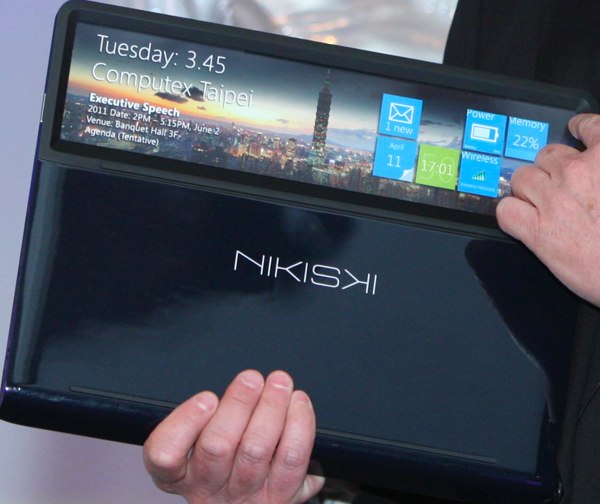
Our good friend Sylvie Barak was quoted on the Gemalto blog
Intel demos NFC on an ultrabook: tap your credit card on your laptop touchpad to pay. #AWESOME #CES #eet_CES
Personally I don’t see making payments with a laptop being an option that many people would adopt. Bringing the ability for retailers, small businesses, or the average consumer to accept payments via built-in NFC hardware is an entirely different matter. We have already begun to witness the downfall of the traditional payment options and watched as first PayPal then Square knocked down the payment barriers.
With Google Wallet and Isis using NFC payments and PayPal by phone at Home Depot stores (without NFC) and NFC payments in Sweden it is clear we have almost arrived at a new paradigm in the ability to accept payments. When your smartphone can act as a terminal for both positive and negative cash flow, without any additional hardware, the benefits will market themselves.
Last year I heard over and over “2011 is the year of NFC (in the U.S.)” beginning at CES. I was not clear on why people were making that statement at the time. If I remember correctly, there were no high-profile devices announced in Las Vegas last year. The Nexus S had been announced in November the previous year, sure, but that was it. There was extremely limited NFC functionality for the end-user at the time.
It was quiet until May when Google announced Google Wallet and it did not become available until September. Not only that but it was only launching on Sprint “As the first carrier to launch Google Wallet, Sprint once again shows its commitment to being open and working closely with an innovative partner like Google.”
Nearly three months later we find out that Google Wallet would be blocked (or not blocked, or yeah, blocked) by Verizon. If you missed the Galaxy Nexus controversy (in the Android world) surrounding the absence of Google Wallet. Many, myself included, felt that Isis was the cause. You may not realize that it’s a joint venture between T-Mobile, AT&T, and Verizon. It is not a difficult conclusion to arrive at. I’m not suggesting that this is completely a matter of not backing Google Wallet because of Isis; there are valid concerns regarding security and payment systems.While I would like to believe that Google has done its due diligence and has addressed security the lack of an industry wide standard concerns me. there have been concerns, first raised by Verizon and then raised by ViaForensics a few days later. Without a standard and a dedicated backing across many diverse industries they will likely struggle to gain significant market share.
Gemalto is one of the biggest names in digital security and has been chosen to secure the Isis mobile payment platform. They have a proven track record of providing security solutions for financial institutions and protecting the information within the wireless industry. Choosing Gemalto to provide the security for Isis Mobile Wallet was a smart move. If Isis comes to market before the middle of the 2012 and has strong support from retailers as well as proven security……This could, in fact, be the year




One comment
Leave a reply →
Comments are closed.